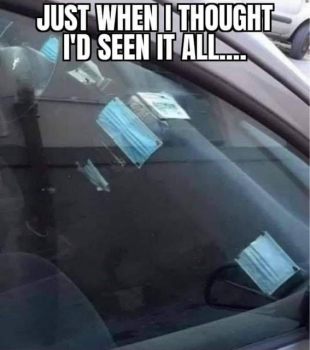Bobby Jo
Well-Known Member
.
Bobby Jo
.
@[email protected]
You cover a lot of ground in your podcast about door to door strike forces but fail to mention that long before any of us were born the supreme court validated state police powers to mandate vaccinations for the public good:
When the Supreme Court Ruled a Vaccine Could Be Mandatory
When the Supreme Court Ruled a Vaccine Could Be Mandatory
A 1905 decision provided a powerful and controversial precedent for the flexing of government authority.
Dave Roos, Jan 6, 2021
...
In the case known as Jacobson v. Massachusetts, Jacobson’s lawyers argued that the Cambridge vaccination order was a violation of their client’s 14th Amendment rights, which forbade the state from “depriv[ing] any person of life, liberty, or property, without due process of law.” At question, then, was whether the “right to refuse vaccination” was among those protected personal liberties.
The Supreme Court rejected Jacobson’s argument and dealt the anti-vaccination movement a stinging loss. Writing for the majority, Justice John Marshall Harlan acknowledged the fundamental importance of personal freedom, but also recognized that “the rights of the individual in respect of his liberty may at times, under the pressure of great dangers, be subjected to such restraint, to be enforced by reasonable regulations, as the safety of the general public may demand.”
...
You cover a lot of ground in your podcast about door to door strike forces but fail to mention that long before any of us were born the supreme court validated state police powers to mandate vaccinations for the public good:
When the Supreme Court Ruled a Vaccine Could Be Mandatory
When the Supreme Court Ruled a Vaccine Could Be Mandatory
A 1905 decision provided a powerful and controversial precedent for the flexing of government authority.
Dave Roos, Jan 6, 2021
...
In the case known as Jacobson v. Massachusetts, Jacobson’s lawyers argued that the Cambridge vaccination order was a violation of their client’s 14th Amendment rights, which forbade the state from “depriv[ing] any person of life, liberty, or property, without due process of law.” At question, then, was whether the “right to refuse vaccination” was among those protected personal liberties.
The Supreme Court rejected Jacobson’s argument and dealt the anti-vaccination movement a stinging loss. Writing for the majority, Justice John Marshall Harlan acknowledged the fundamental importance of personal freedom, but also recognized that “the rights of the individual in respect of his liberty may at times, under the pressure of great dangers, be subjected to such restraint, to be enforced by reasonable regulations, as the safety of the general public may demand.”
...
Bobby Jo
.



 :
:
